Boris Johnson is nodding along as he reads Karl Marx. To be more precise, he is standing in the Spectator boardroom reading a letter that Marx and Engels wrote to this magazine in 1850 complaining about being pursued by Prussian government spies in London. He then admires a picture of the youthful Taki chatting up Joan Collins at a New York nightclub in 1957. When he was editor of this magazine, he called it ‘the best job in London’. But now he says that being mayor of London was even better. Less fun, perhaps, but more fulfilling. After eight years at City Hall, he is turning his mind to what he will do next.
As we sit down to lunch, he suggests that since he has so much more time on his hands, perhaps he could write the leading article or proofread some pages. But as ever, the truth is that he has far too much to do. He has a book on Shakespeare to finish, a Brexit campaign to win, and, if the bookmakers are to be believed, a Tory leadership campaign to assemble. He’s currently red-hot favourite for the top job.
But Boris’s emergence as one of the leaders of the Leave campaign took many by surprise. To his critics, it was a cynical conversion and an unashamed attempt to woo Eurosceptic Tory members ahead of a leadership bid. In the thousands of articles he had written about Europe before this referendum, he had never advocated leaving. ‘It is unquestionably true that I’ve changed,’ Boris admits. ‘But so has the EU. And of the two of us, it’s the EU that has changed more than me.’
Boris says he’d been mulling over his decision for three years, ever since David Cameron’s Bloomberg speech, in which the PM promised that he would settle for nothing less than ‘fundamental, far-reaching change’ for the EU, and would then hold a referendum.
‘I thought — bloody hell, when that comes round I’m really going to be on the spot,’ Boris says. ‘For many people, the Bloom-berg speech was a moment of hope, a credible programme of change in Europe. Dave spoke of repatriating powers, making the EU more competitive, devolving powers back to people and making it less remote — it was all great stuff. But not a sausage has been produced. Not a bean, not a sausage, not a jot.’
Boris is scathing about how Cameron and his gang handled the renegotiations, pointing out that they began them ‘by basically going round saying: “We’ve got this embarrassing problem of putting membership to the British people, we’re going to need some concessions, what can you give us?” I don’t think that was ever likely to produce substantial and far-reaching reform of the kind that was outlined in the Bloomberg speech.’
He puzzles over why Cameron was in such a hurry to do a deal: ‘We had until the end of 2017, why didn’t he play it long?’ The Prime Minister lost, he says, because he did not ‘swivel the guns of the Dreadnought’ on Brussels.
Boris says he would have handled the renegotiation very differently: sticking to the original demands and explaining that, without them being met, the government could not recommend a vote to Remain. ‘I would have gone with the Bloomberg text and said: this is what we want, give it to us or the baby gets it.’ But, he argues, ‘Negotiation didn’t produce anything, so there is no alternative — if Vote Leave is not the right answer then what is?’ Or, as he later puts it in one of his less Periclean moments, ‘It’s shit or bust.’
Before he joined The Spectator, Boris was the Daily Telegraph’s Brussels correspondent. In that role he developed a deep suspicion of how British politicians tried to cover up the extent to which the ‘German colossus’ was ‘effectively fig-leafed with 12 European stars’.
He admits that he has his work cut out persuading people to vote for Brexit. ‘My side is urging a change and a change is a radical thing to do. For many people, change is loss. And people think, “Oh my God, what is it going to mean for me?” But in this case, change would be a massive gain. Staying in means less security and further erosion of our independent self-governing status.’ He goes on: ‘We can’t vote for the status quo. If you vote to stay in, you vote to be part of a project that is changing the whole time.’
He is buoyed by the polls showing no decisive shift to Remain despite Downing Street issuing almost daily warnings about the supposedly dire consequences of Brexit. We meet just after the Prime Minister’s speech warning that peace in Europe might be threatened if Britain votes to leave. ‘They have tried everything now: world war three, the bubonic plague… And people aren’t buying it, you can tell that from the polls.’
The Prime Minister, Boris says, took a ‘punt’ in calling the referendum without securing a substantial deal. ‘I think that was a mistake. I think the British public are looking at all this and thinking: “Take back £20 billion? Take back control of the borders? Run the country? Democracy? You know, it might be a good idea.”’
So what kind of relationship does Boris want with the EU after Brexit? He knows what he doesn’t want: ‘the so-called single market’, which he says is a problem rather than the solution. ‘People think the single market is a great wonderful European souk or bazaar in which you will find absolutely everything humanity could possibly desire: aubergines, derivatives, trucks, ballistic missiles…’ But, unfortunately, the single market is ‘a gigantic system’ that imposes ‘extremely detailed and onerous rules on a territory of 500 million’.
‘The European Court of Justice in Luxembourg is supreme in every matter,’ he warns. ‘It’s now a colossal body of law and comprises everything — including human rights. That’s why I’m for Out.’
The Westminster rumour mill has it that the newly knighted Lynton Crosby, his former mayoral campaign manager, converted Boris to Brexit. When we ask him about this, Boris tries to bat away the question: ‘All I will say is that Lynton Crosby is a very great man and I owe a great deal to him and I listen to his advice on everything. But on this particular case I can categorically say that his advice was not decisive.’ When pressed about whether Crosby had encouraged him to back Brexit, he replies, pleadingly: ‘Lynton is too good, he’s too nice, to be dragged into this.’
Boris’s attempt to protect Sir Lynton’s neutrality may be part of an effort to minimise fallout in the Tory party after the referendum. But Boris does not conceal his irritation with George Osborne. The Chancellor recently spoke of the need for ‘sober, serious, principled’ leadership in the Conservative party, which was seen as a swipe at Boris.
‘I am delighted to hear that he’s principled,’ Boris shoots back. ‘That is a major, major development.’ When we ask him what qualities the leader of the Tory party needs, he loyally replies that he should be ‘smartly turned out, about six foot tall and faintly rubicund with brown hair swept back off his forehead’. Should Britain vote to leave, he adds, ‘I hope very much that the Prime Minister will stay on and negotiate the terms of our exit. By nature, and by inclination, he is an extremely good dealmaker, but he just didn’t give himself enough time.’
All the same, when asked if he will debate David Cameron on the EU referendum, Boris replies ‘I will’ — despite the fact that No. 10 has made it clear that neither the Prime Minister nor the Chancellor intends to debate him. The BBC is staging a debate in Wembley stadium, so this is a sore point. ‘I’m not privy to any of these conversations,’ Boris claims. ‘What I’ve said is — you point me and I’ll march, I’ll do whatever I’m told to do… Somehow or other, we’ve got to have debates and they have to elucidate the issues to the public.’ He insists, ‘I wouldn’t do it with any great joy because I don’t want to be opposing my Prime Minister.’
Would he like to debate Cameron?
‘Put it this way,’ he says, ‘I think I’d look a bit of a wimp if I said no… For me to recuse myself from the debates would be wet.’ So the message to Cameron is clear: come and have a go.
Boris’s main concern today, though, is with the people to whom he devoted an earlier eight years of his life. The readers of this magazine. He leans into the microphone and makes his appeal directly. ‘Dear Spectator reader: do you see Britain’s future as an open, global, free trading, dynamic economy based on confidence in tried and tested British institutions? Or do you believe that in order to survive we need to remain embedded in something that fundamentally takes away our powers? Something that, over the past 15 years or so, has been a powerful depressor of jobs and growth in our historic European home?’
Boris is normally the happiest of political warriors. But there is one part of this debate that he finds painful: ‘I hate that sudden look of hurt in the face of an Italian friend when they think this means that you are turning your back on them.’ He is at pains to stress that he is ‘naturally, temperamentally, emotionally a very pro-European person with a big E… I love Europe, I really do.’
He is confident that his two great historical heroes would be on his side in this struggle. Churchill would not have wanted ‘parliamentary sovereignty to have been so compromised. I think he believed in that above all else. He would have felt it had gone too far.’ And he contends that Pericles, the great Athenian statesman he so often cites, would also have been an Outer. Boris argues that ‘to stick up for democracy is entirely Periclean’ and that the referendum ultimately comes down to whether you believe in ‘rule by the many, not the few’.
If the referendum goes against Boris, he thinks that the next Conservative party manifesto should admit that EU immigration into Britain cannot be controlled: ‘They should be honest.’ He goes on: ‘One of the most corrosive things is that government won’t level with us about it.’
Still, he remains hopeful that he can help Vote Leave win this referendum. ‘We are asking the British people to be brave, to be confident in themselves and to believe in Britain,’ he says with his trademark enthusiasm. ‘We have a very good chance.’
Got something to add? Join the discussion and comment below.
Get 10 issues for just $10
Subscribe to The Spectator Australia today for the next 10 magazine issues, plus full online access, for just $10.
Kipper Williams has just published a collection of his cartoons about Europe, In or Out?, which includes several that first appeared in The Spectator.
You might disagree with half of it, but you’ll enjoy reading all of it. Try your first month for free, then just $2 a week for the remainder of your first year.

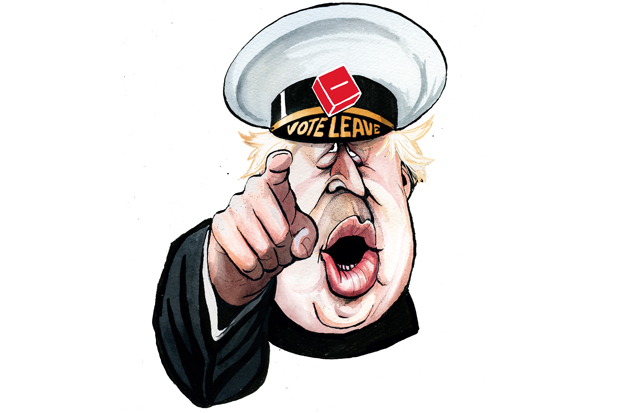
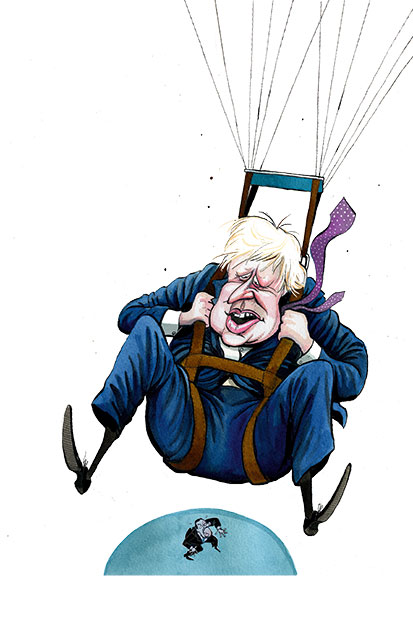
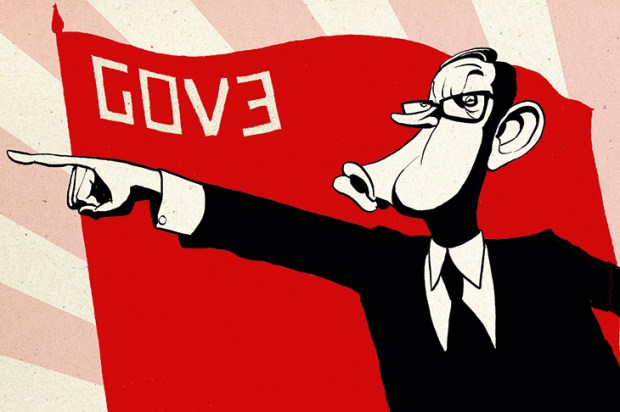
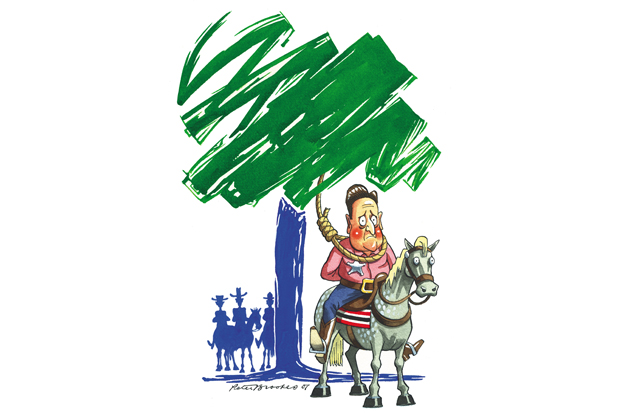
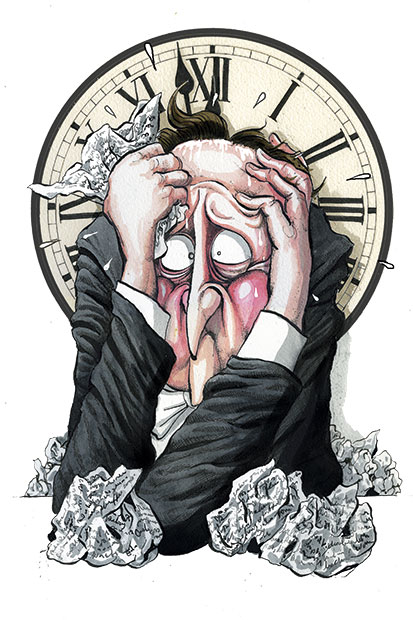








Comments
Don't miss out
Join the conversation with other Spectator Australia readers. Subscribe to leave a comment.
SUBSCRIBEAlready a subscriber? Log in